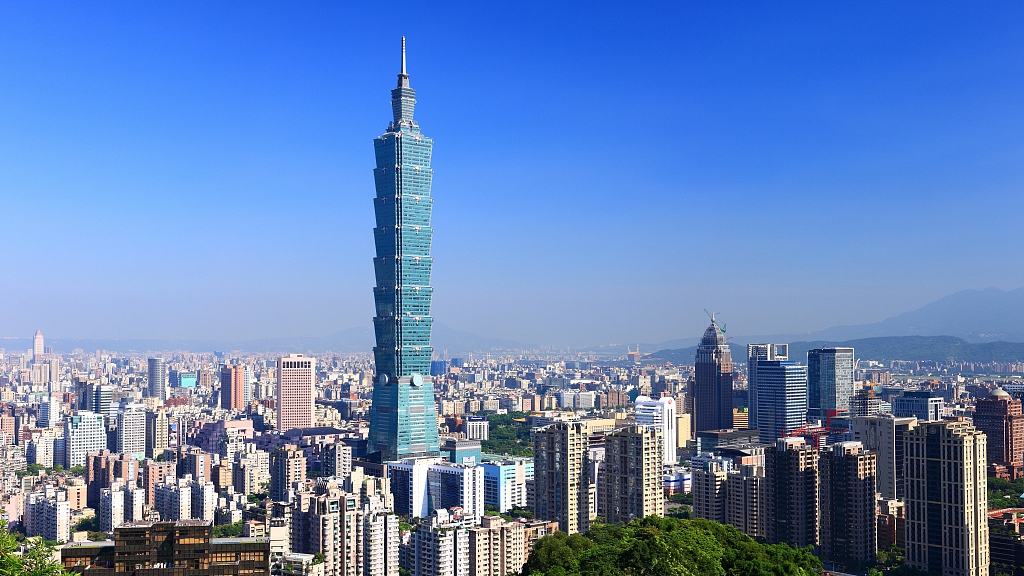
The Taipei 101 skyscraper commands the urban landscape in Taipei, Taiwan. [Photo/Xinhua]
This is an editorial from China Daily.
Asked about the root cause of the Taiwan Straits tensions and how to preserve peace and stability in the area after giving a policy speech at the ASEAN Secretariat in Jakarta, Chinese State Councilor and Foreign Minister Wang Yi emphasized the one-China principle as the anchor of stability across the Straits.
The current tensions across the Straits are rooted in the fact that Taiwan's Democratic Progressive Party authorities have abandoned the 1992 Consensus on one China, undermining the foundation for the peaceful development of cross-Straits relations, and going further down the wrong path of "seeking independence with foreign support," Wang said.
He also said that in trying to use the "Taiwan card" to disrupt and hinder China's development, the United States was constantly distorting and hollowing out its commitment to one China.
Describing Taiwan as "the core of core Chinese interests", the Chinese foreign minister called on countries to preserve the one-China principle, which he reiterated is the fundamental principle underpinning diplomatic relations with China, as well as an essential component of post-World War II international order.
Wang was correct in reminding countries that when the one-China principle is fully recognized and thoroughly followed, the Taiwan Straits remain calm and the two sides enjoy peace; when it is challenged or even sabotaged, there are "dark clouds or even ferocious storms". The international community is no stranger to the dramatic twists and turns in relations across and over the troubled waters.
Given the obvious discrepancies in the interpretation of one-China between the Chinese and US governments, and the DPP authorities' attempt to completely undo it, as well as their conflicting definitions of what constitutes the "status quo" to be preserved, and what qualifies as efforts to change it, the present tensions across and over the Straits will not ease anytime soon. The most imperative task for all stakeholders at this point is to make serious endeavors to preempt their escalation.
This is a pressing need, because they are in danger of accumulating to a point of no return, which none of them is actually in favor of.
The most urgent priority, therefore, is for every one of them to get a clear picture of the potential for harm that is building up, and apply restraint so that the damaging potential is not materialized.
There may be an endless back and forth over which party was the first to provoke tensions on the matter and who is responsible for what. But considering it is in the best position to take the heat out of the situation, the onus is on Washington to mend its ways. Things would be quite different should it stop making political gestures that embolden the "independence" seekers in Taiwan.
After all, Beijing feels it is being pushed into a corner because of this, and some in Taipei believe the US would rush to their side should their provocations against the mainland cross Beijing's redline, triggering military action.
De-escalating the mounting tensions and engaging in serious communication on crisis control is the only correct way to safeguard peace across the Straits.

 中文
中文





